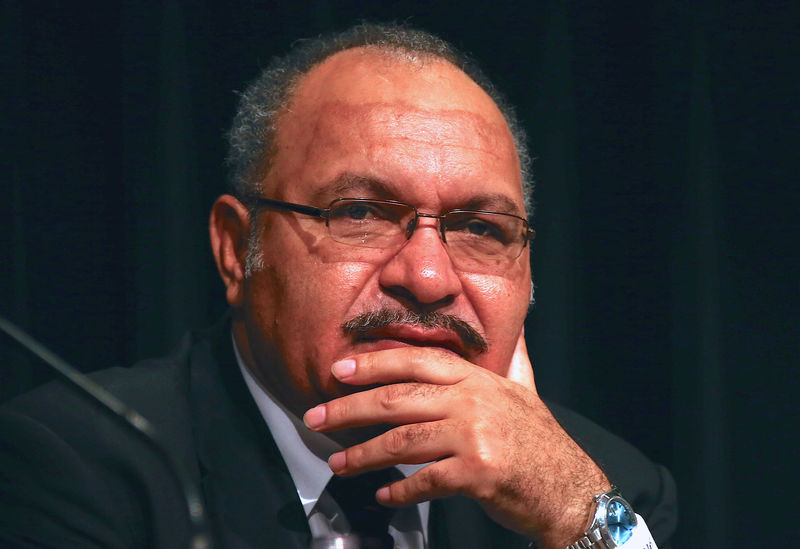By Colin Packham
SYDNEY (Reuters) - Papua New Guinea's parliament on Wednesday re-elected Peter O'Neill as prime minister, ending a chaotic election campaign marred by violence, which analysts fear may continue amid widespread voter unrest.
While O'Neill's ruling People's National Congress party was unable to win enough seats to form a government outright in elections last month, in which counting continues, he secured enough support from minor parties and independent lawmakers to be re-elected prime minister, a job he has held since 2011.
O'Neil was declared the winner of the vote by newly-elected speaker Job Pomat after securing 60 votes.
O'Neill's re-election marks a rare period of political stability in the resource-rich South Pacific nation that has seen four different leaders in the last six years.
But with the election tainted by poor organisation and opposition accusations of electoral roll irregularities, voter frustration, already high, looms over O'Neill's tenure.
"Emotions are running high and there is a lot of dissatisfaction with the way that O'Neill managed his first term. I think at some point that emotion will boil over," said Jonathan Pryke, a research fellow at Australian think-tank the Lowy Institute.
O'Neill's government has promised to improve education and health care but his fiscal gamble in his previous term limits his ability to meet those commitments, analysts said.
O'Neill's government borrowed heavily in the expectation that Exxon (NYSE:XOM) Mobil's $20-billion LNG plant would unleash a new wave of economic prosperity, but a slide in energy prices saw the 2016 budget deficit balloon to 34 percent of GDP, more than double what it was in 2012.
"The economy is a mess. The numbers from treasury show anaemic growth but in reality when you look at the data, the country is in recession," said a former PNG economic advisor to the government who spoke on condition for anonymity.
To meet mounting interest repayments, O'Neill's government cut services to its near 8 million population, stoking civil unrest. Corruption, which has plagued PNG for decades, has also acted a lightening rod for anti-O'Neill supporters.
O'Neill, who came to power promising to rein in corruption, has faced allegations he authorised millions of dollars in fraudulent payments to a leading law firm.
In 2014, an anti-corruption watchdog issued an order for O'Neill's arrest over the alleged incident. O'Neill rejected the charges, refused to submit to the warrant and ordered the watchdog stripped of its funding.
"Corruption is everywhere and things have to change. The people want a change," Noel Anjo, a political activist who led a student protest last year that ended when police began shooting.

(This version of the story was refiled to fix typographical error in paragraph 11)